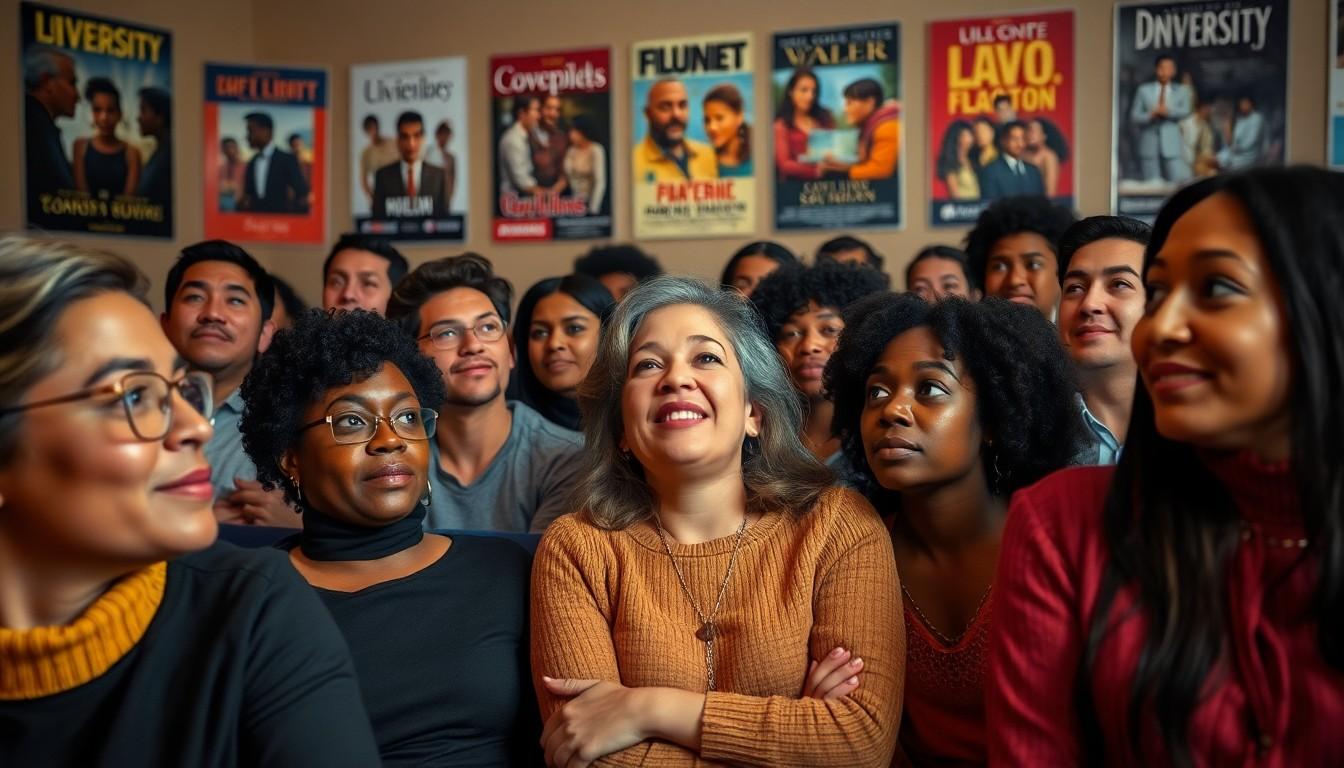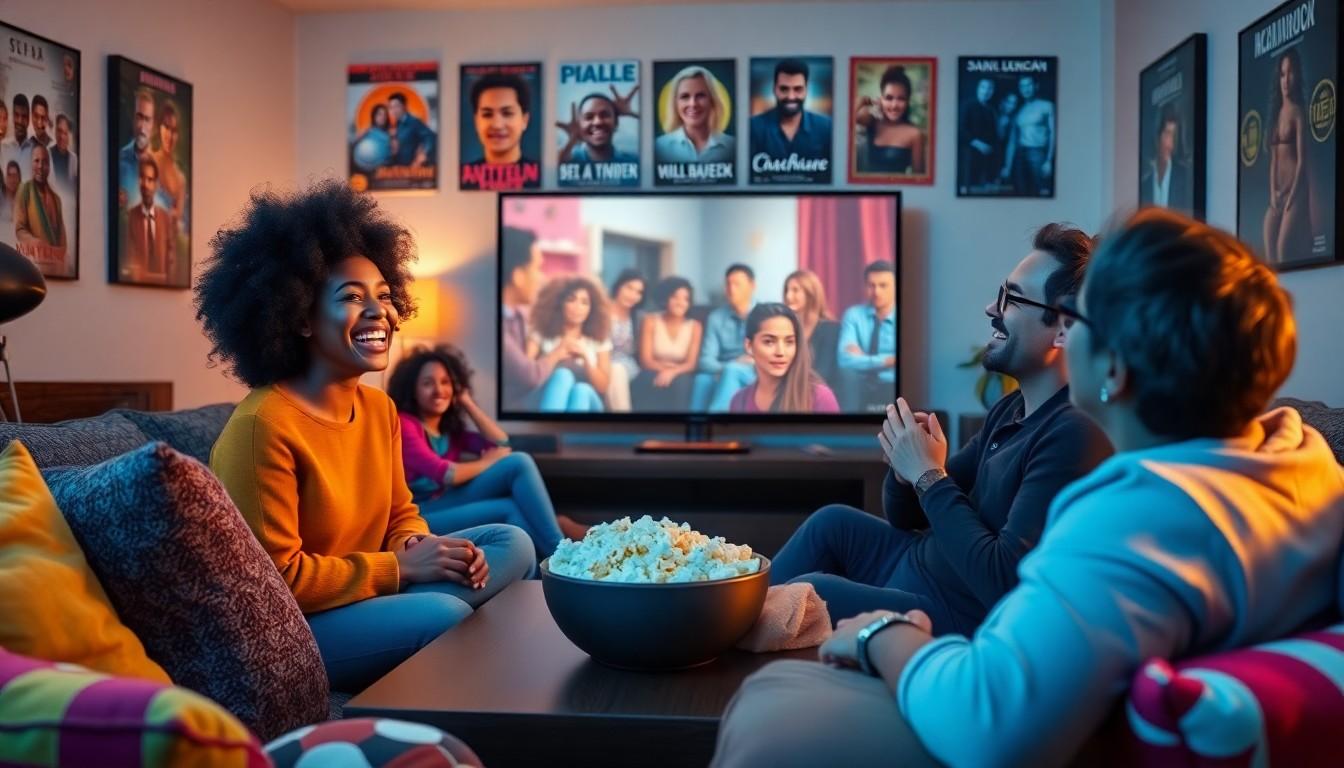In a world where streaming services dominate our screens, why not dive into the fascinating realms of culture and gender through film? Exploring these themes online for free is like finding a hidden treasure chest filled with cinematic gems waiting to be discovered. Picture this: you, a comfy couch, and a selection of films that challenge societal norms and celebrate diversity—all without spending a dime.
Film has an incredible power to illuminate the intricacies of culture and gender, often in ways that textbooks can’t. Whether it’s a quirky indie flick or a thought-provoking documentary, each film offers a unique lens into the human experience. So, grab your popcorn and get ready to embark on an enlightening journey that’ll not only entertain but also broaden your understanding of the world. Who knew learning could be so much fun?
Read Exploring Culture and Gender Through Film Online Free
Cultural representation in film highlights how societal norms shape narratives. Gender roles often affect the portrayal of characters, influencing audience perceptions. Films serve as reflections of cultural values, offering insights into diverse experiences.
Diverse genres explore issues of race, ethnicity, and gender identity. Documentaries present real-life stories, illuminating struggles and triumphs faced by marginalized groups. Independent films frequently challenge mainstream narratives, providing platforms for underrepresented voices.
Gender representation varies across different cultures. Some films embrace traditional roles, while others subvert expectations, promoting progressive ideals. Cultural narratives can shift over time, leading to evolving interpretations of gender within cinematic contexts.
The impact of groundbreaking films, such as “Moonlight,” has redefined how gender and culture intersect on screen. Its exploration of identity offers a poignant commentary on the complexities of race and sexuality. Documentaries like “Miss Representation” address the media’s role in shaping perceptions of women, sparking critical conversations.
Streaming platforms enhance accessibility to films that tackle these themes. Free online resources allow audiences to engage with global perspectives, fostering a deeper understanding of cultural and gender dynamics. Viewers gain the opportunity to analyze the interplay of culture and gender in various narratives, enriching their cinematic experiences.
Critical analysis of films can prompt discussions about societal norms and biases. Engaging with diverse films broadens perspectives, fostering empathy and understanding. Such explorations contribute to important dialogues about identity, representation, and the power of storytelling.
Importance of Exploring Culture and Gender
Exploring culture and gender through film plays a vital role in understanding societal dynamics. Films serve as a mirror, reflecting diverse narratives and perspectives.
Representation in Film
Cultural representation in film significantly affects how audiences perceive different groups. Films showcase issues of race, ethnicity, and gender identity, illustrating the rich tapestry of human experiences. Independent films often push boundaries, providing platforms for underrepresented communities. Documentaries highlight the challenges faced by marginalized groups, creating awareness and fostering dialogue. Major films like “Moonlight” redefine traditional portrayals of gender, encouraging empathy and insight. Diverse genres ensure varied representations, which resonate with audiences and challenge stereotypes.
Impact on Society
Films can influence societal attitudes and promote change. Gender representation shapes how individuals view their roles and relationships within society. Groundbreaking documentaries inspire conversations about identity, policy, and cultural norms. These cinematic experiences cultivate empathy, inviting viewers to understand different realities. Engaging with diverse narratives encourages audiences to reflect on their beliefs. The availability of films on streaming platforms amplifies these discussions, allowing for broader reach and impact. Societal shifts often stem from the critical dialogues ignited by film, making exploration of culture and gender of utmost importance.
Platforms for Accessing Films Online Free
Numerous platforms offer free access to films that explore culture and gender. These services present a variety of choices for viewers seeking meaningful content.
Popular Streaming Services
Popular streaming services frequently provide a selection of films focused on cultural and gender themes. Websites like Tubi, Pluto TV, and Crackle curate diverse catalogs, featuring both independent films and documentaries. Users can browse by genre, making it easy to find specific topics related to cultural representation and gender identity. In addition, some services offer original content that sparks dialogue about societal norms. Accessible to anyone with an internet connection, these platforms create opportunities for education and engagement without cost.
Independent Film Archives
Independent film archives are repositories of lesser-known films that reflect complex cultural narratives. Platforms such as the Internet Archive or Anthology Film Archives allow viewers to access a wealth of independent cinema. Users can discover rare films that challenge mainstream portrayals of gender and culture. Many of these archives host virtual screenings and discussions, further enriching the experience. Through independent films, audiences encounter diverse perspectives that invite deeper thought about societal issues. These resources contribute significantly to the understanding of cultural identities and gender dynamics.
Methodologies for Analyzing Films
Analyzing films through different methodologies enhances understanding of cultural and gender themes. Various approaches unveil the complexities within narratives and offer fresh insights into representation.
Critical Film Theory
Critical film theory examines the underlying ideologies present within films. It analyzes how cinematic techniques influence audience perception and reflect societal values. Key theories include feminist film theory, which critiques gender representation, and psychoanalytic theory, focusing on audience identification and desire. Theory applications facilitate discussions about power dynamics, often revealing how films either uphold or challenge dominant narratives. Notably, films that address gender issues often provoke conversations about identity and cultural norms, encouraging viewers to reflect on their own experiences.
Intersectionality in Film Analysis
Intersectionality involves understanding how overlapping social identities affect individual experiences. This approach applies to film analysis by examining the interplay between race, gender, sexuality, and class within narratives. Intersectional analysis uncovers the nuances in character development, illustrating how diverse backgrounds influence perspectives and experiences. When applied to films, this methodology reveals hidden complexities, showing how marginalized voices strive for representation. Understanding intersectionality fosters a more inclusive discourse, guiding audiences in recognizing the interconnectedness of societal issues depicted in various films.
Recommended Films for Exploring Culture and Gender
Films offer unique insights into culture and gender, making them valuable for audiences exploring these themes. Here are some recommended films that shed light on these important topics.
International Perspectives
Global cinema introduces audiences to cultural variations in gender roles and societal norms. Films like “Parasite,” from South Korea, illustrate class struggles intertwined with familial dynamics and gender expectations. “Rafiki,” a Kenyan film, highlights LGBTQ+ themes while navigating societal constraints. Another powerful example, “Frida,” portrays the life of Mexican artist Frida Kahlo, encapsulating gender identity and cultural identity. These films encourage viewers to reflect on their own cultures while appreciating different perspectives around the world.
Diverse Narratives
Independent films frequently present marginalized voices, enriching the conversation around culture and gender. “The Farewell,” a drama centered on a Chinese-American family, addresses cultural differences in dealing with illness and death, especially regarding the role of women. “Moonlight,” an acclaimed coming-of-age story, delves into race and sexuality, showcasing how identity shapes personal experiences. Documentaries like “Disclosure” focus on transgender representation in media, sparking dialogue about inclusivity. Such diverse narratives challenge mainstream portrayals, expanding understanding of the complexities within gender and culture.
Culture and Gender in Film
Exploring culture and gender through film offers an invaluable opportunity to engage with diverse narratives and perspectives. By utilizing free streaming platforms, viewers can access a wealth of content that challenges traditional norms and fosters understanding.
Films serve as powerful tools for reflection and conversation, inviting audiences to consider the complexities of identity and representation. As viewers immerse themselves in these stories, they not only entertain but also educate, enriching their appreciation for the rich tapestry of human experiences.
Embracing this cinematic journey can lead to greater empathy and awareness of societal dynamics, making it a worthwhile endeavor for anyone interested in the intersections of culture and gender.


